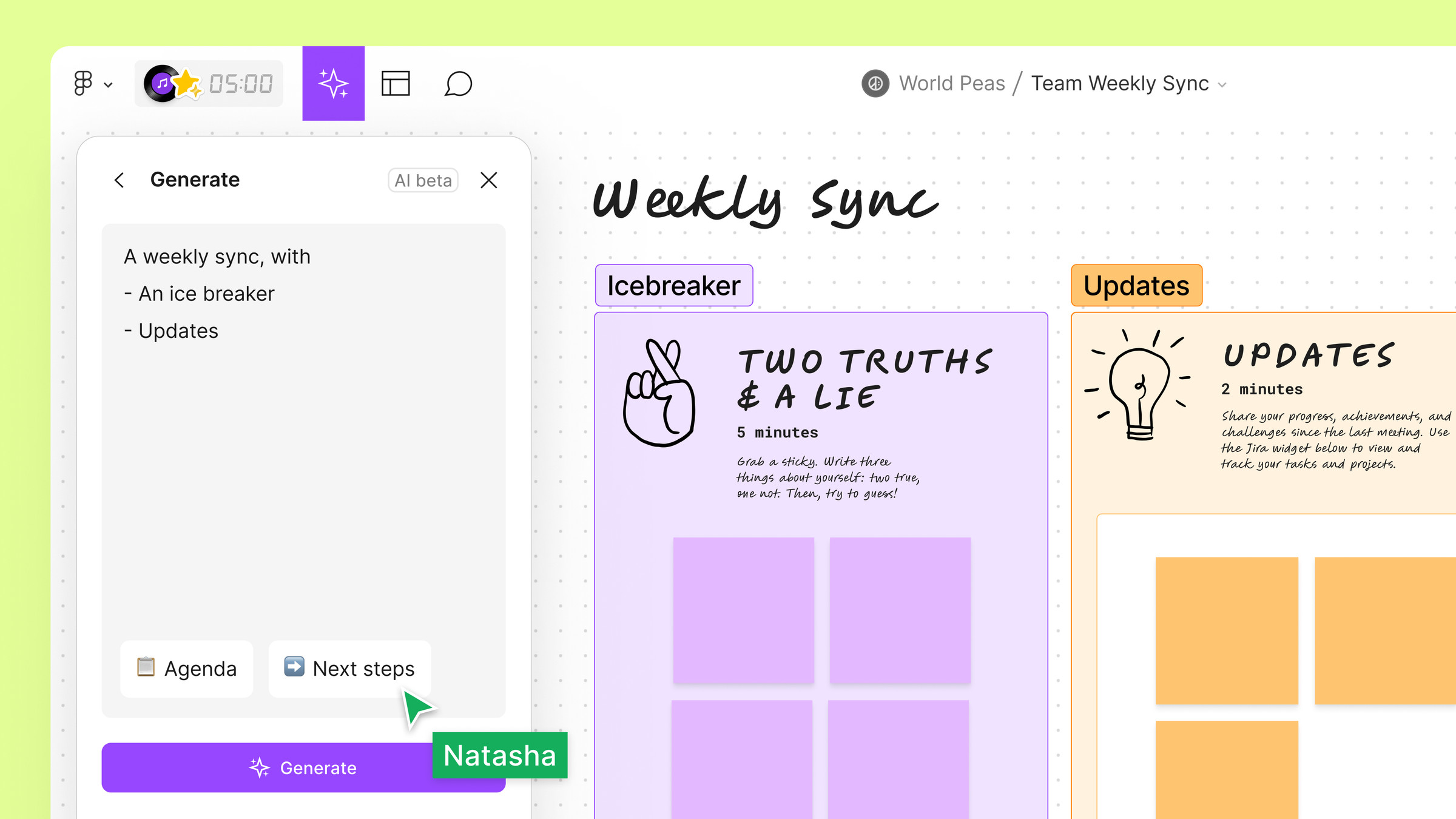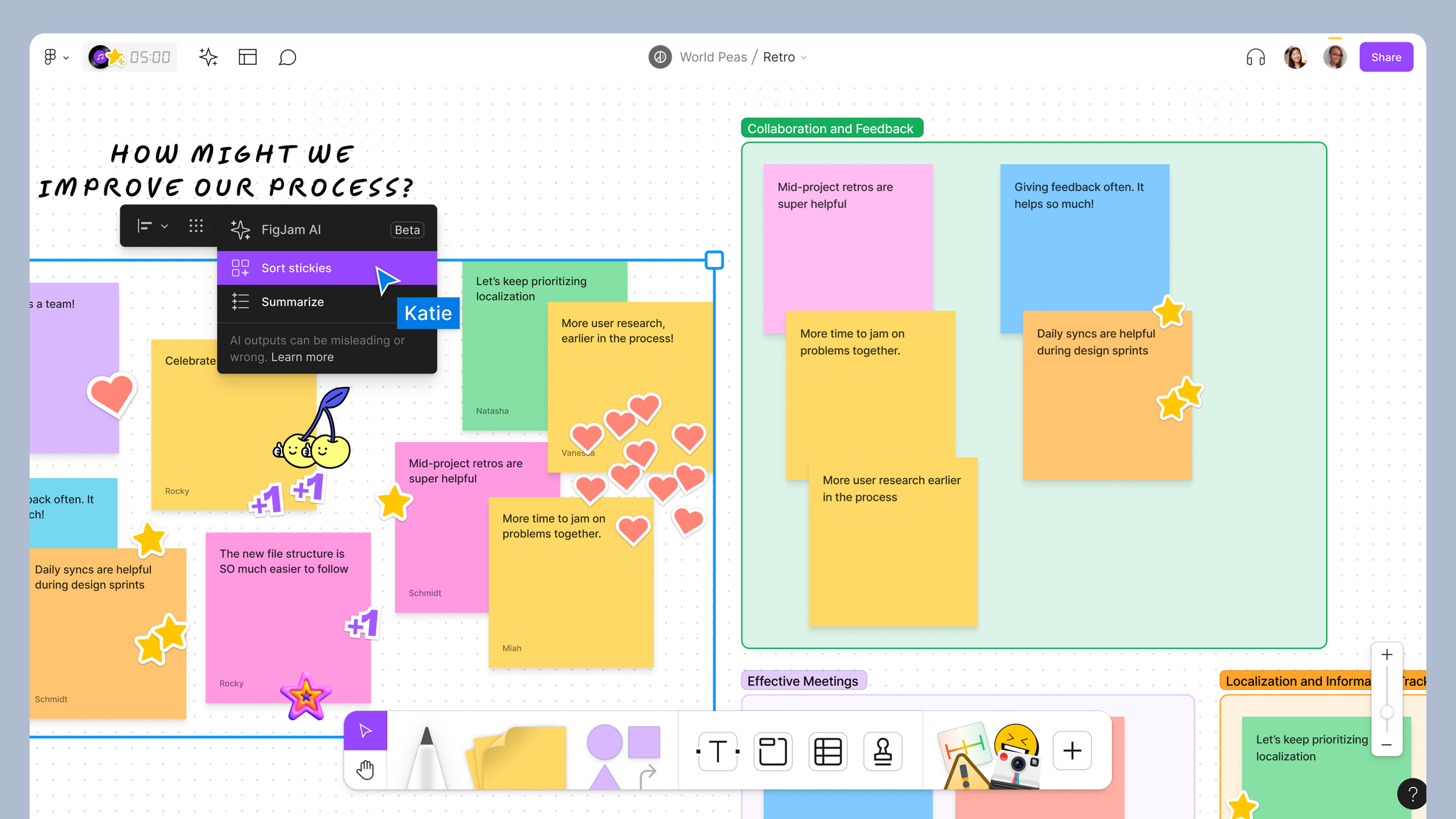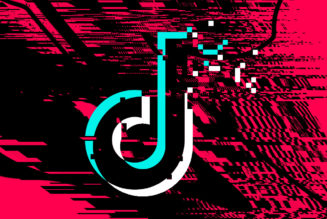FigJam AI is available now in open beta and is ‘currently free’ for all customer tiers.
Share this story
Figma, best known for its product design applications, has announced FigJam AI — a new suite of generative AI tools for its collaborative whiteboard service FigJam that creates ready-to-use templates for common design and planning projects. The idea is that FigJam AI can reduce the preparation time needed to manually create these collaborative whiteboard projects from scratch, leaving designers with time to concentrate on more pressing tasks.
FigJam AI is available in open beta starting November 7th and is “currently free” for all customer tiers. We have asked Figma to clarify if FigJam AI will remain free to use when it enters general availability and will update this article if we hear back.


A new Generate feature provides a selection of suggested prompts to create templates for things like flowcharts, icebreakers, brainstorming sessions, and 1:1 meeting planners, alongside a text box where you can describe what you want it to generate in your own words. The AI will also suggest some default descriptions to include within the content — for example, proposing that you add a timeline, the number of projects, and project milestones when generating a Gantt chart. Users can delete or otherwise adjust sections of the generated projects in the same way they can with manually created projects.


FigJam AI also includes Sort, which automatically organizes stickies — the platform’s virtual equivalent of real sticky notes for jotting down ideas — into different groups based on key themes, and Summerize, which creates a summary of information taken from groups of stickies with a single click. These new features can be used alongside Jambot, a ChatGPT-powered FigJam widget that the company rolled out in beta in August.
In an interview with The Verge, Figma co-founder and CEO Dylan Field said the company is considering other AI-related developments and that these initial features for FigJam AI are “an obvious place to start.” The current FigJam AI beta uses OpenAI foundation models, which Field claims can be easily swapped out for other foundation AI models. We have asked Figma to clarify which OpenAI foundation models are being used and if switching to another AI model will be offered in a future update.
“For FigJam I think we’ve been really strategic,” said Field. “Across the entire Figma platform, we’ve thought about all the ways that AI can be useful and narrowed it down to a few use cases where we can bake it into the product in a deep way that really helps. It really matters that you’re not doing everything that you can possibly think of, but rather the things that are most impactful.”








